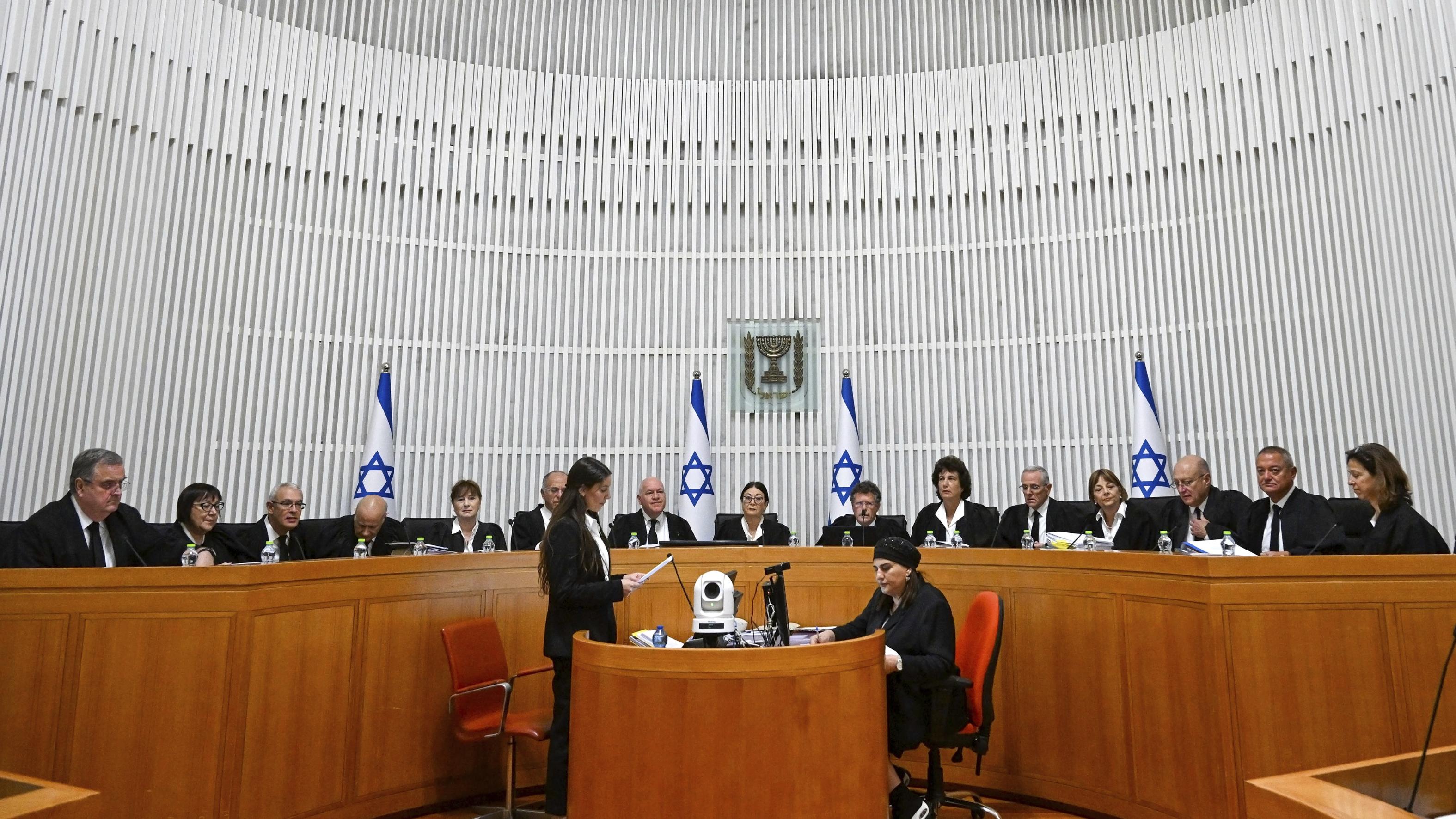 All 15 of Israel's Supreme Court justices appear for the first time in the country's history to look at the legality of Prime Minister Benjamin Netanyahu's contentious judicial overhaul, which the government pushed through parliament in July, in Jerusalem, Sept 12, 2023. (PHOTO / POOL / AP)
All 15 of Israel's Supreme Court justices appear for the first time in the country's history to look at the legality of Prime Minister Benjamin Netanyahu's contentious judicial overhaul, which the government pushed through parliament in July, in Jerusalem, Sept 12, 2023. (PHOTO / POOL / AP)
JERUSALEM - Israel's Supreme Court is deliberating whether to strike down a new law that is a key part of the judicial overhaul led by Prime Minister Benjamin Netanyahu to limit the court's powers, as it hears an appeal against the controversial law.
The law, which was passed by the Israeli parliament in July, eliminates the court's authority to overturn government decisions on the grounds of being "unreasonable," a standard rarely invoked by Israeli courts, typically reserved for cases they consider severely flawed or corrupted.
On Sept 12, the Supreme Court brought all 15 judges together for the first time in history to hear the appeal in a marathon 13-hour session, during which judges and lawmakers engaged in intense debates.
READ MORE: Israel Supreme Court to hear PM incapacity law pleas in Sept
A ruling is not expected before October.
Some ministers and lawmakers from the governing coalition, including Parliament Speaker Amir Ohana, have indicated that they would not comply with a court ruling that invalidates the new law.
The reform plan was first presented by Justice Minister Yariv Levin in early January, who argued that it was necessary to reduce the powers of the unelected judiciary in order to grant politicians more freedom to implement their policies.
Legal experts have cautioned that the situation may lead to legal ambiguity, compelling citizens, public institutions, the police, and the military to consider whether to obey orders given by the parliament or the court
However, critics of the reform contend that it will weaken the court system, undermine the rule of law, foster corruption, and inflame nationalism and racism.
Legal experts have cautioned that the situation may lead to legal ambiguity, compelling citizens, public institutions, the police, and the military to consider whether to obey orders given by the parliament or the court.
ALSO READ: Israel on edge ahead of top court session on judicial overhaul
"While this doesn't mean the end of Israeli democracy, it does mark a step in a gradual erosion process," said Pnina Sharvit-Baruch, head of the Program on Law and National Security at Tel Aviv University's Institute for National Security Studies.
"The immediate concern is that once the reasonableness standard is removed, the government may feel less obligated to act reasonably and consider the input of its legal advisors, potentially leading to more unreasonable decisions and improper appointments," she said.
The judicial overhaul has ignited widespread protests in Israel, with hundreds of thousands of citizens taking to the streets across the country for 37 consecutive weeks.


